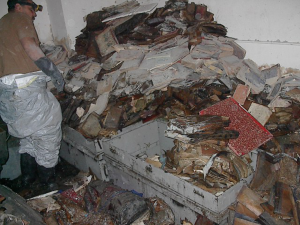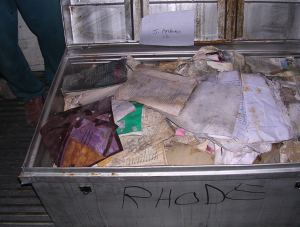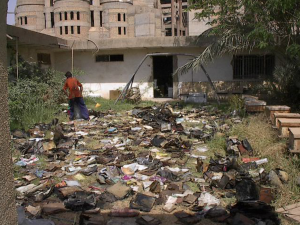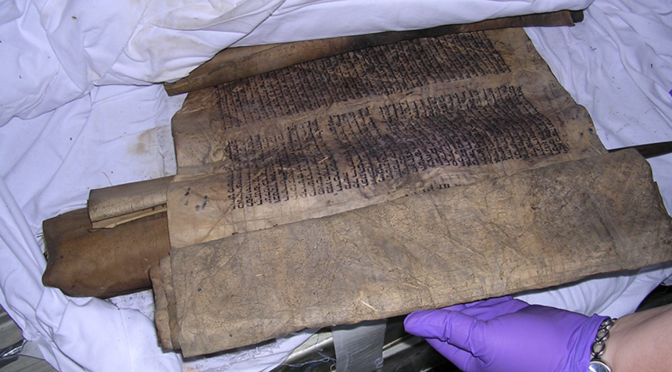On May 6, 2003, United States soldiers in Iraq went down into a basement in an Iraqi Special Intelligence house. The basement was flooded with water and had been left without supervision for months. Buried in the water and mud, soldiers found hundreds of documents from Iraqi Jews, varying from prayers from the 15th Century CE to journals from the 1970’s (“The Iraqi Jewish Archive”). The soldiers brought the books outside to let them dry out. Mold started growing on the books, and the team commander contacted the American National Archives for information on how to preserve the documents. The National Archives responded immediately—they ordered that the books be quickly packaged up and be shipped to the United States for further preservation efforts. At the National Archives in Washington, DC, the documents were dried out, copied, and digitized.

At the time, the National Archives argued that the relics had to be moved to the United States (Sanchez 2014). Iraq was too dangerous a location for such important documents, as evidenced by the fact that they were left in a flooded basement.

There were two kinds of artifacts found in the basement in Baghdad, documents about every day life and important religious relics. The personal letters, diaries, and reflections of various Iraqi Jews have not caused much controversy. The more religious artifacts, including a copy of the Torah and several collections of prayers, have forced the National Archives to promise to return the collection to Iraq at some point (Shapiro 2014).
When there is a religious connection to artifacts, questions of ownership become more complicated.
The Iraqi view: Iraq used to be a country with a rich Jewish culture and large Jewish population. The Iraqi Jewish Archive reflects that important piece of Iraq’s past. The Archive is a piece of Iraq’s cultural history, representative of its importance as a multi-cultural state. Furthermore, the Archive represents how Judaism in Iraq differed from other parts of the world. Local cultural influences changed how the Iraqi Jews prayed, lived, and saw the world. When kept outside of Iraq, these documents lose their context (Fox 2014).

The American view: Jewish heritage groups in the United States are advocating for keeping the relics states-side. Since the 1970’s, when some of the last of the Iraqi-Jewish archive was written, Jews have been pushed out of Iraq. Government sponsored anti-Semitism through exclusion and persecution forced Iraqi Jews to flee their country. American Jewish heritage groups argued that Iraq, known for its past expulsion and targeting of Jews, should not have such valuable artifacts from Iraqi Jewish heritage; rather, the Iraqi Jews forced into diaspora to places like the United States from Iraq should own the artifacts (“About the Iraqi Jewish Archive”). The relics, including the copies of the Pentateuch and prayers, deserve to be in America, where they can be more easily accessed by modern Jews, whether Iraqi or not.
The Archive was housed at the National Archives on a loan from the Iraqi government. The agreement was that as soon as the preservation was complete, the Archive would be returned to Iraq. Currently, these items are on display in the Richard Nixon Presidential Library, and the Iraqi government has agreed to the United States keeping the Iraqi Jewish archives until 2016 (Markoe 2014). At that time, the documents will be returned to Iraq.
[slideshow_deploy id=’33’]
Some of the artifacts, due to their religious importance, could not be displayed. Fragments of the Torah and the Book of Esther were reviewed by the World Organization of Jews from Iraq (WOJI) and deemed to be damaged beyond repair. The rabbis agreed that the Torah fragments had to be ritually buried in accordance with Jewish custom. Of the 50 fragments, 49 were buried. The single remaining piece is on exhibit (“The Iraqi Jewish Archive”). Interestingly, the Torah fragments were buried in a cemetery in New York. Although Iraqi ambassadors and cultural leaders were present for the ceremony, the Iraqi Jewish Torah pieces have their final resting place in America.
